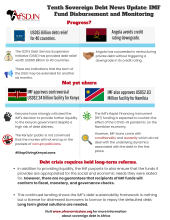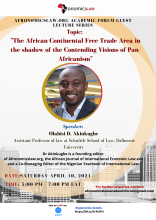Digital Sales Tax in Africa and the Covid-19 Pandemic
It is imperative that a strategy and approach be undertaken to address MNE business models and challenges regarding taxing the digitalized economy, and that legislative measures are enacted to preserve or expand Africa’s tax base. Overall, the potential gains from Digital Sales Tax are significant, as inclusion of digital services tax, may subsequently increase revenue that may be utilised for developing States, particularly at a time of high State expenditure to alleviate the economic and social impact of Covid-19. You could include some benefits from countries that have imposed unilateral taxation legislation highlighted above to showcase the potential gains.

